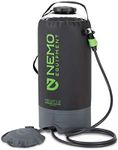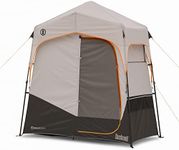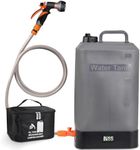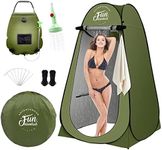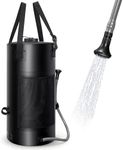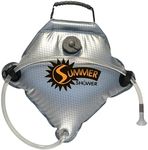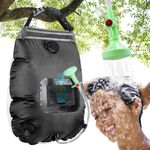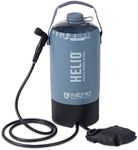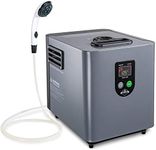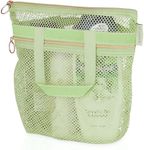Buying Guide for the Best Solar Camp Showers
Choosing the right solar camp shower can greatly enhance your outdoor experience by providing a convenient way to stay clean and refreshed. Solar camp showers use the sun's energy to heat water, making them an eco-friendly and efficient option for camping. When selecting a solar camp shower, it's important to consider several key specifications to ensure it meets your needs and preferences. Here are the main factors to consider and how to navigate them.CapacityCapacity refers to the amount of water the shower can hold, usually measured in gallons or liters. This is important because it determines how long you can shower before needing to refill. Smaller capacities (around 2-3 gallons) are lighter and easier to carry, making them suitable for solo campers or short trips. Larger capacities (5 gallons or more) provide longer showers and are better for groups or extended stays. Consider how many people will be using the shower and how long you plan to be out in the wilderness to choose the right capacity for you.
Heating TimeHeating time is the duration it takes for the water to reach a comfortable temperature using solar energy. This is crucial for ensuring you have warm water when you need it. Heating times can vary based on the shower's design and the intensity of sunlight. Faster heating times (1-2 hours) are ideal for areas with strong sunlight and for those who need quick access to warm water. Longer heating times (3-4 hours or more) might be acceptable if you have the luxury of time and consistent sunlight. Think about your schedule and the typical weather conditions of your camping locations to determine the best heating time for your needs.
Material and DurabilityThe material and durability of the solar camp shower affect its longevity and performance. Common materials include PVC, TPU, and other plastics. Durable materials are essential for withstanding outdoor conditions and frequent use. Lightweight materials are easier to carry but may be less durable. Heavier, more robust materials can handle rougher use but add to the overall weight. If you plan on using the shower frequently or in rugged environments, opt for a more durable material. For occasional use or lighter travel, a less durable but lighter option may suffice.
PortabilityPortability refers to how easy it is to transport and set up the shower. This includes the weight, size when packed, and any additional features like carrying handles or compact design. Highly portable showers are lightweight and can be folded or rolled into a small size, making them ideal for backpacking or minimalist camping. Less portable options might be bulkier but could offer more features or greater capacity. Consider how you will be traveling and the importance of minimizing weight and space in your gear to choose the right level of portability.
Ease of UseEase of use encompasses how simple it is to fill, heat, and operate the shower. Features like wide openings for filling, clear temperature indicators, and user-friendly nozzles can make a big difference. Showers that are easy to set up and use are particularly beneficial for those new to camping or who prefer convenience. More complex systems might offer additional features but can be harder to manage. Think about your comfort level with setting up and using camping gear to select a shower that matches your preference for simplicity or advanced features.
Flow Rate and PressureFlow rate and pressure determine how the water comes out of the showerhead, affecting the overall shower experience. Higher flow rates and pressure provide a more powerful shower, which can be more effective for rinsing off. Lower flow rates conserve water but might result in a less satisfying shower. Adjustable flow rates are ideal as they offer flexibility depending on your water supply and personal preference. Consider how important a strong shower is to you versus the need to conserve water when choosing the right flow rate and pressure.

